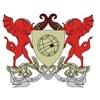Molecular mechanisms and new strategies to fight stresses in egg-producing birds
Published: December 16, 2016
Summary
Introduction Commercial egg production is associated with various stresses decreasing productive and reproductive performance of layers. It is proven that most of stresses in poultry production (technological: chick placement, vaccinations and transfer to breeder houses; environmental: heat stress, high ammonia, etc.; nutritional: mycotoxins, misbalances of vitamins, minerals, amino acids, etc...
Related topics:
Authors:

Influencers who recommended :
Prof. Stefan Denev, DSc., PhD., Talaat Mostafa El-SheikhRecommend
Comment
Share

20 de diciembre de 2016
It is a wonderful article and opens up new aspect of handling oxidative stress in poultry. The authors mentioned that during stress, the feed intakes of birds dropped and that's why antistress mix supplied in water becomes more helpful in combating the stress.
My point is, why not we include some organic mineral which are part of antioxidant defense mechanism of the bird body and lets not develop stress to a level where feed intake is dropped.
I personally believe, providing some organic minerals/vitamins especially Selenium in feed could be more effective than water soluble supplements.
Recommend
Reply

16 de diciembre de 2019
1. Supplying extra nutrients with feed in stress conditions is problematic, since feed consumption is decreased
2. Organic minerals can have protective effects only in the case of their dietary deficiency. However, major commercial poultry and feed diets are not Zn, Cu or Mn-deficient.
3. Organic Se can be beneficial.
4. My whole idea is to develop a system of quick response to stress conditions. For example, you need to supply extra nutrients, but feed bin contains feed for a few days consumption and therefore, before that feed is used it is impossible to add extras with feed. That is why my suggestion is to use drinking system for supplying necessary nutrients.
5. By upregulating vitagenes it is possible to increase resistance of birds or other animals to stress
Recommend
Reply
20 de diciembre de 2016
It is a wonderful article and opens up new aspect of using anti stress factors in laying stocks
Recommend
Reply

16 de diciembre de 2019
Talaat Mostafa El-Sheikh Thank you very much
Recommend
Reply
Food & Allied Group of Companies
27 de diciembre de 2016
It is a very interesting research work which has a great importance in the field. How many farms are implementing the recommendations of the project and what are their results?
Recommend
Reply


Effective Solutions to Manage Poultry Heat Stress for Better Health and Farm Productivity
Suggested link

16 de diciembre de 2019
The recommendations (The vitagene-regulating mixture called PerforMax) are used in many different countries and at various poultry (broilers, breeders, layers, etc.) and pig farms
Recommend
Reply

17 de julio de 2017
Thank you for comments, I would like to stress the following:
1. Organic minerals will not solve the problem of the stress, their supplementation is effective only in the case of dietary mineral (Zn, Mn, Cu, Se) deficiency. If the diet is adequate in these minerals, there would not be much response in terms of antioxidant enzyme synthesis. The technology of supplying special vitagene-regulating mixture is dealing with improvement of adaptive ability of animals in stress conditions. This technology is considered to be " a fast-reacting tool" in the hand of nutritionist/technologists to deal with stressful situations in commercial poultry/animal production. Indeed, such situations are very often unpredictable and the usage of feed supplements in such situations has a low flexibility (one have to finish the feed in the feed bin, before anything can be added via feed). In contrast to this, usage the supplement with water gives an opportunity of fast reacting.
2. As for usage of such technology in industry, it is widely used worldwide, including Russia, Ukraine, Kazakhstan, Moldova, Egypt, Turkey, Thailand, Taiwan, etc. Such a tool helps in various stressful situations, from heat stress to mycotoxicosis, from immunosuppression to post-vaccinal stress, etc.
Recommend
Reply

16 de diciembre de 2019
Dr Peter, excellent insightful story about the favorable action of possible nutritional agents to mitigate the negative effects of heat stress on monogastric performance. Taking advantage of the knowledge of the research team involved in the work, I would like to ask a question. Specifically in birds exposed to high temperatures, it would also not be important to evaluate the expression of mitochondrial uncoupling protein (UCP), whose activity decreases, and corticosterone hormone, which increases, precisely due to its recognized actions in the production of free radicals.
Recommend
Reply

16 de diciembre de 2019
Juarez Donzele ; Yes, UCP and corticosterone determinations are important elements for understanding negative consequences of commercially-relevant stresses. However, it is generally accepted that at the cellular level most of stresses are associated with overproduction of free radicals and oxidative stress. Therefore? activation of vitagenes responsible for stress adaptation is considered as a new strategy for decreasing detrimental consequences of commercially-relevant stresses.
Recommend
Reply

16 de diciembre de 2019
Dr. Peter, thank you for the clarification. However, I would like to make clear that it was precisely because of the effects of these factors on free radical production, which is the object of study, that I made the considerations. For example, it is known that decreasing CPU expression, as it results in an increase in mitochondrial proton gradient, increases free radical production. These are different approaches, one protecting cells from oxidative stress by stimulating increased antioxidant factors and the other protecting cells by interfering with the activities of factors that cause increased free radical production. The question is which of the two factors would be most efficient.
Recommend
Reply
19 de diciembre de 2019
Its very interesting topic will help in layer farmer for keeping their farm healthy in critical situation and to produce better quality of eggs.
Recommend
Reply
26 de diciembre de 2019
Water supplements are more effective than in feed supplies due to many well known factors affecting feed intake praticulary during heat stress. The response to organic ligands depends on mineral status of the feeds as said.
Recommend
Reply


Pullets to Layers – Ensuring a Smooth Transition in Cage-Free Systems
Suggested link
3 de enero de 2020
Youssef Attia I agree with you because birds will drink more under heat stress as seen in tropical regions. So any substance to reduce stress should be better administered through water, but I wonder if this is always the case.
Recommend
Reply
1

Would you like to discuss another topic? Create a new post to engage with experts in the community.
























